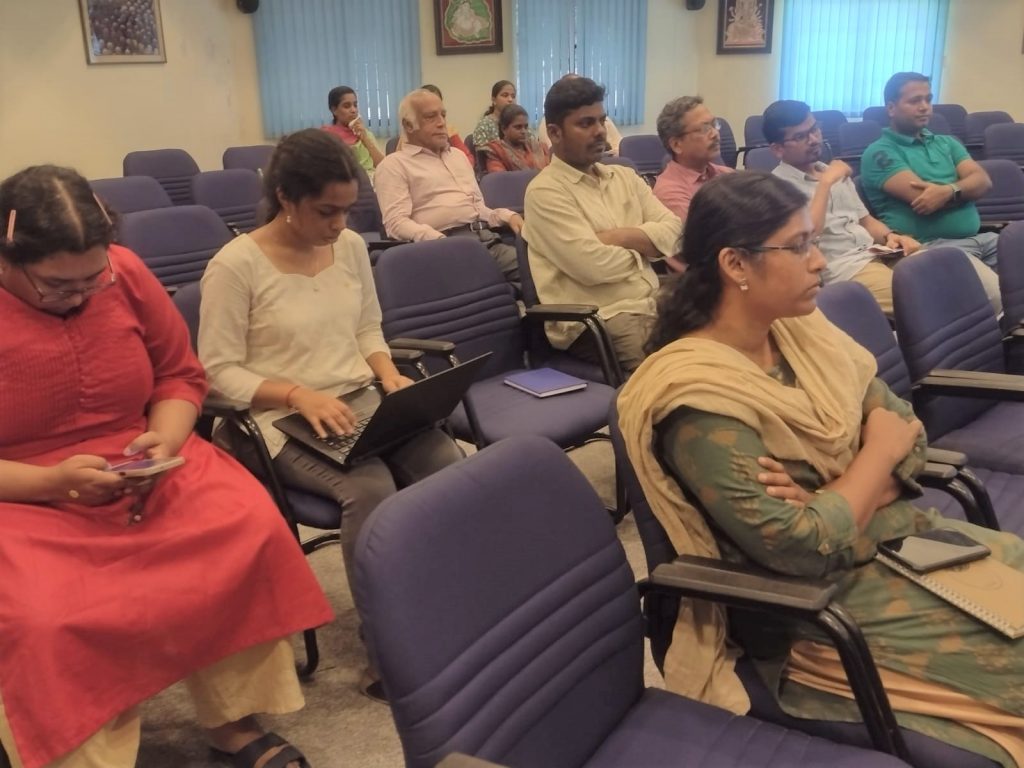MSSRF hosted a hybrid event to bring attention to ‘Neglected and Underutilised Species (NUS) for food and nutrition security in the era of climate change’ on June 28. Focusing on the NUS and their role in addressing food and nutrition security, the session’s Chair Dr Nitya Rao, Professor of Gender and Development at University of East Anglia, UK, highlighted how these crops are historically centered around women. In her initial remarks, she emphasised the importance of recognising the woman’s role in the utilisation and conservation of NUS, and in securing better nutrition security at the household level.
MSSRF scientists – Dr Oliver King, Director of Biodiversity; Dr R Rengalakshmi, Director of Ecotechnology; and Dr R Gopinath, Principal Scientist, made presentations from the production, productivity, conservation, gender, and economics perspectives based on work undertaken by the Foundation.
Dr Oliver King discussed the significance of NUS in building resilience to climate change and addressing nutrition poverty. He mentioned examples such as quinoa, teff, and spicy rocket, that have gained recent popularity, and stressed the need to bring neglected species into the mainstream food system. He also highlighted the importance of conservation, cultivation, consumption, and commerce (4Cs) concept for neglected species developed by Prof M S Swaminathan.
Dr R Rengalakshmi focused on the gender dimension related to NUS. Bringing up the need to diversify farming systems for nutritional security and how small millets, in particular, have provided economic opportunities for rural women, she stressed the importance of considering other intersectional variables such as age and occupation. The key takeaway was the empowerment of women in decision-making processes and the need for policies to protect their rights.
The third panellist – Dr R Gopinath discussed the economic dimensions of NUS, and provided the context of economic factors when transitioning from subsistence production to mainstream food production. The challenges faced by farmers were identified as ‘unorganised markets’, lack of proper facilities for perishable products, and limited incentives for growing neglected species. Primary solutions, he mentioned, included strengthening value chains, improving processing, quality control, and market infrastructure. He also stressed the importance of generating data evidence for informed policy-making.

All speakers emphasised the need for a holistic approach that considers gender dimensions, strengthens value chains, improves market linkages, and generates data for evidence-based decision-making. While summing up the session, Dr Nitya noted that three forms of justice in relation to NUS were unanimous from the presentations – Social justice, Economic justice, and Environmental justice. The session thus provided valuable insights and recommendations for reviving neglected species and securing livelihoods, particularly for marginalised farmers and women in India.
Watch MSSRF hybrid event here

